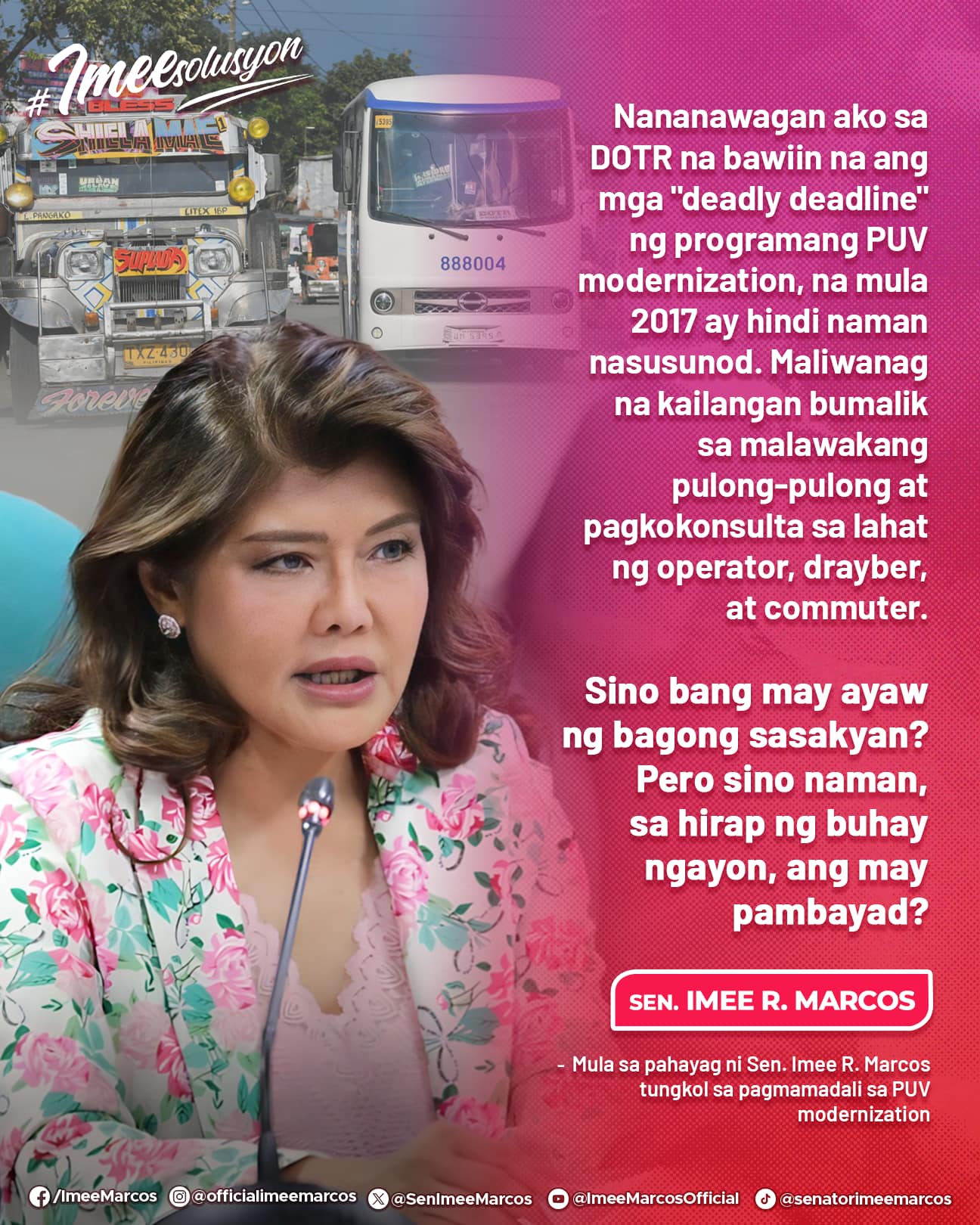
In the wake of the widespread transport strike last December 29, 2023, Senator Imee R. Marcos has unleashed a scathing critique of the rushed implementation of the Public Utility Vehicle (PUV) modernization program.
With an empathetic nod to the plight of drivers, transport operators, commuters, workers, students, businesses, and small entrepreneurs reliant on PUVs, Marcos vehemently called for a reevaluation of the program’s timelines.
“I call on the DOTr to revoke the ‘deadly deadlines’ of the PUV modernization program that have fallen short of compliance since 2017,” expressed Senator Marcos, highlighting the pressing need to re-engage in comprehensive consultations involving all stakeholders, including operators, drivers, and commuters.
Marcos elucidated the financial strain posed by the modernization initiative, emphasizing the stark incongruity between the government subsidy of Php210,000 to Php280,000 and the exorbitant price tag of approximately Php2.5 million for a new Euro-4 compliant PUV.
“Who doesn’t want a new vehicle? But with the high cost of living, how many can afford one?,” Marcos emphasized.
The Senator pointedly addressed the unresolved issues surrounding the undetermined trade-in value of older vehicles, exacerbated by the meager earnings of PUV operators amidst soaring gasoline prices.
Dealerships, spare parts suppliers, and maintenance services find themselves ill-prepared to cope with the abrupt surge in demand, with technical education authorities conceding preparedness only for Euro-2 PUV repairs.
Moreover, Marcos challenged the mandatory membership imposition on transport cooperatives, questioning the potential transformation of thousands of operators and drivers from independent entrepreneurs to employees within these cooperatives.
“If an operator or driver takes out a loan, will this be guaranteed by the coop? If loan payments become problematic, will the coop answer for them, or will the bank tow away the vehicle subject to the loan?” queried Marcos, underscoring the complexities and risks inherent in the transition.
Anticipating the impact of elevated vehicle costs on transport fares, Senator Marcos urged an attentive ear to the grievances of PUV stakeholders.
She strongly urged the Land Transportation Office (LTO) and Department of Transportation (DOTr) to desist from threatening stakeholders with deadlines, suspensions, and franchise revocations.
In conclusion, Senator Marcos stressed the imperative of recalibrating the PUV modernization strategy, emphasizing the urgent need for inclusive deliberations and empathetic consideration for the challenges faced by PUV operators, drivers, and commuters amid this pivotal transition.
Share
